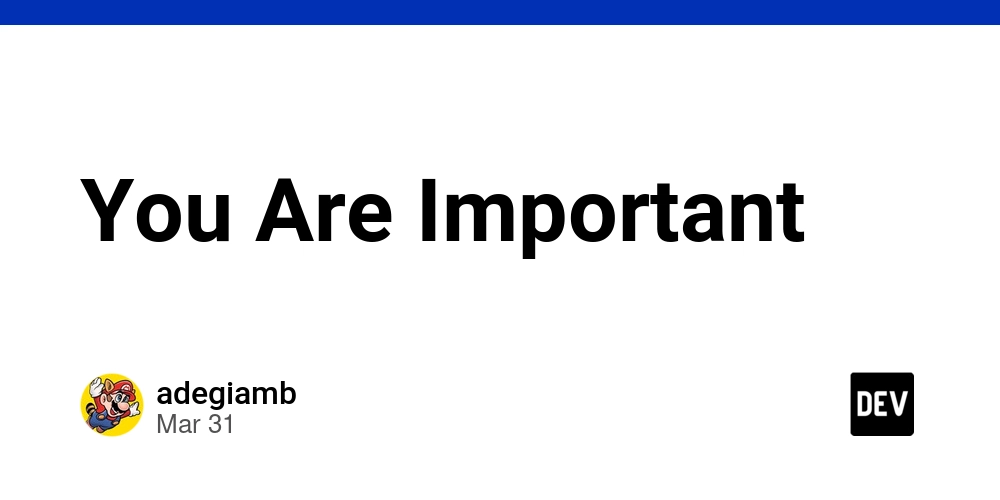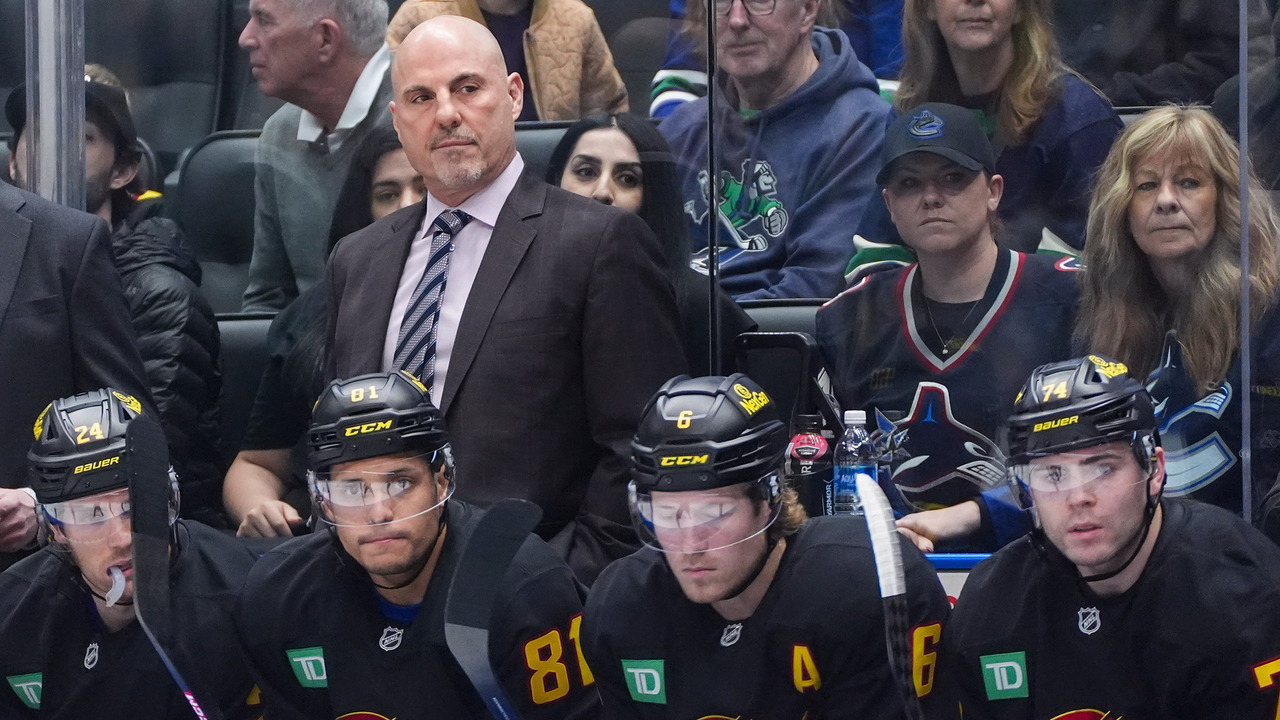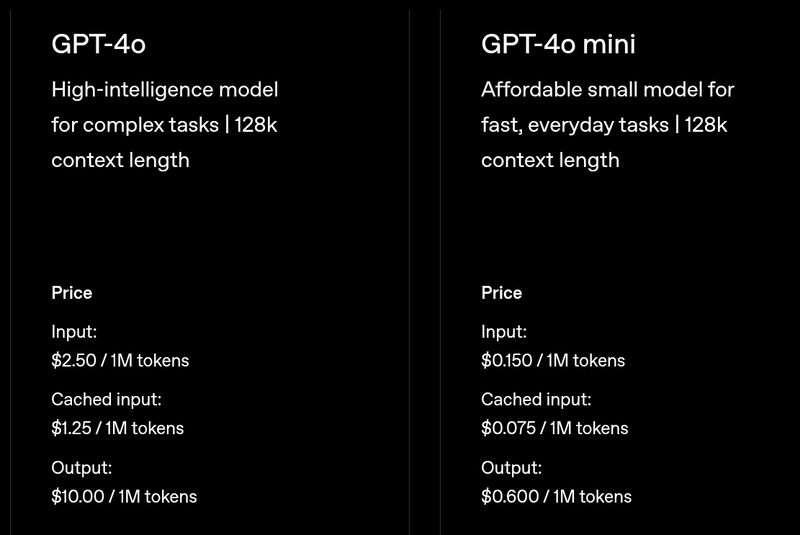You Are Important
We sometimes forget that we are as important as or more important than the projects we work on. Doing overtime or prioritizing work for a short period is okay, but when it becomes the norm, it becomes a problem. Signs of Overworking When I am mentoring other team members, here are some signs I tell them to look out for: You are working through your lunches. Every night, you work a bit late. Your sleep routine changes. You cancel or do not attend events in your personal life. You stop doing your hobbies. At work, your fuse is getting short with team members. You are saying to yourself, "If I don't do this, I will block other team members, or the project will be late." Your stress and anxiety are higher than usual. If you start noticing the impact of overworking, you must raise this to your lead or manager and see how to bring things back to normal. You need to figure out what options exist: Can other team members support you? Confirm your tasks' priorities and ensure you are working on the correct ones. Can the deadline change, or what is included? If overworking is a pattern, raise it in a retro and keep the task accountable. Gauges You need to find some gauges you can watch to see if you are making work more vital than yourself. You should check them often. I usually do mine at the end of each week, and if they seem to be trending toward overwork, I check them more often until they are back to normal. Gauges are unique for each person, but here are some of mine: Work interferes with me spending time with my niece and nephew. This is a hard stop for me to do a reset. I make work an excuse for not going on a hike. I can not do my woodworking. Prioritization yourself This section will most likely not resonate with some leaders and management. But you must always put your mental and physical health before what you are working on. If not, it will impact your work. Understand your role and IDP Over the years, I was put into poorly defined roles and was not aligned with my direct manager, which caused tension between us. You need to work on defining and aligning the role as soon as possible to ensure that your work aligns with it since this impacts your day-to-day IDP and promotions differently. Once you have the role clearly aligned, work on your IDP (independent Development Plan) and make sure: Understand how items are measured. Where you are currently in each section in your IDP. What is needed to get to the next level? What are the timelines to get a promotion, and are you aligned? One-on-Ones One-on-one meetings are for you and the lead/manager to focus on items related to you, not project updates. That is what standups are for. If project updates are asked in your one-on-ones, ask to do it at the end if time remains or book another meeting. When I was a lead, I made sure I outlined that we should discuss: What went well, and what needs to be improved? Any crucial topics you want to raise. Any feedback to give or given from others. Review your IDP (this may not happen all one-on-one but should try to be every other). Raising Concerns If you face issues or concerns and can not resolve them, raise them for support. Do not set on them and let them grow; there is a high chance someone else is facing the same concern. If you have to provide some details that another team member provided, ask permission to speak on their behalf since they may not be comfortable sharing, and you don't want to lose their trust. Good Days vs Bad Days No job or role is perfect, and you will always have some bad days. However, when your bad days start outweighing your good ones, it can be a sign that you must begin reviewing and prioritizing yourself. Some techniques I use to help me understand how I feel about the role: Outline what I enjoy doing. Outline what items I am not enjoying. What is not rubbing me the right way in general (company, projects, interaction) Do I see a path of items not enjoying being fixed? Reach out to someone I trust and get their input. Self Care Here are some items I do for self-care to make sure I am prioritizing myself: I booked a meeting at lunchtime that auto-declined. Everyone needs to have lunch and a mental break. If the meeting is that important, I will let the organizer DM me the context and see if I can give up my lunch. If I do overtime through the week here and there. I will end my week earlier. I disable notifications after work hours. However, if there are trusted team members, I will add them to the expectation list (e.g., Slack VIP). Support is missing When you work for a company for an extended period of time, things can get a bit clouded due to friendships and feeling comfortable. However, if most of the items on the list are happening, it can be a sign that the current environment is not for you: When you wake up and dread going

We sometimes forget that we are as important as or more important than the projects we work on.
Doing overtime or prioritizing work for a short period is okay, but when it becomes the norm, it becomes a problem.
Signs of Overworking
When I am mentoring other team members, here are some signs I tell them to look out for:
- You are working through your lunches.
- Every night, you work a bit late.
- Your sleep routine changes.
- You cancel or do not attend events in your personal life.
- You stop doing your hobbies.
- At work, your fuse is getting short with team members.
- You are saying to yourself, "If I don't do this, I will block other team members, or the project will be late."
- Your stress and anxiety are higher than usual.
If you start noticing the impact of overworking, you must raise this to your lead or manager and see how to bring things back to normal.
You need to figure out what options exist:
- Can other team members support you?
- Confirm your tasks' priorities and ensure you are working on the correct ones.
- Can the deadline change, or what is included?
- If overworking is a pattern, raise it in a retro and keep the task accountable.
Gauges
You need to find some gauges you can watch to see if you are making work more vital than yourself.
You should check them often. I usually do mine at the end of each week, and if they seem to be trending toward overwork, I check them more often until they are back to normal.
Gauges are unique for each person, but here are some of mine:
- Work interferes with me spending time with my niece and nephew. This is a hard stop for me to do a reset.
- I make work an excuse for not going on a hike.
- I can not do my woodworking.
Prioritization yourself
This section will most likely not resonate with some leaders and management. But you must always put your mental and physical health before what you are working on.
If not, it will impact your work.
Understand your role and IDP
Over the years, I was put into poorly defined roles and was not aligned with my direct manager, which caused tension between us.
You need to work on defining and aligning the role as soon as possible to ensure that your work aligns with it since this impacts your day-to-day IDP and promotions differently.
Once you have the role clearly aligned, work on your IDP (independent Development Plan) and make sure:
- Understand how items are measured.
- Where you are currently in each section in your IDP.
- What is needed to get to the next level?
- What are the timelines to get a promotion, and are you aligned?
One-on-Ones
One-on-one meetings are for you and the lead/manager to focus on items related to you, not project updates. That is what standups are for.
If project updates are asked in your one-on-ones, ask to do it at the end if time remains or book another meeting.
When I was a lead, I made sure I outlined that we should discuss:
- What went well, and what needs to be improved?
- Any crucial topics you want to raise.
- Any feedback to give or given from others.
- Review your IDP (this may not happen all one-on-one but should try to be every other).
Raising Concerns
If you face issues or concerns and can not resolve them, raise them for support. Do not set on them and let them grow; there is a high chance someone else is facing the same concern.
If you have to provide some details that another team member provided, ask permission to speak on their behalf since they may not be comfortable sharing, and you don't want to lose their trust.
Good Days vs Bad Days
No job or role is perfect, and you will always have some bad days. However, when your bad days start outweighing your good ones, it can be a sign that you must begin reviewing and prioritizing yourself.
Some techniques I use to help me understand how I feel about the role:
- Outline what I enjoy doing.
- Outline what items I am not enjoying.
- What is not rubbing me the right way in general (company, projects, interaction)
- Do I see a path of items not enjoying being fixed?
- Reach out to someone I trust and get their input.
Self Care
Here are some items I do for self-care to make sure I am prioritizing myself:
- I booked a meeting at lunchtime that auto-declined. Everyone needs to have lunch and a mental break. If the meeting is that important, I will let the organizer DM me the context and see if I can give up my lunch.
- If I do overtime through the week here and there. I will end my week earlier.
- I disable notifications after work hours. However, if there are trusted team members, I will add them to the expectation list (e.g., Slack VIP).
Support is missing
When you work for a company for an extended period of time, things can get a bit clouded due to friendships and feeling comfortable.
However, if most of the items on the list are happening, it can be a sign that the current environment is not for you:
- When you wake up and dread going to work.
- Going to work because of just friendships.
- You are not learning anymore.
- Your role and IDP are not set, and the path to get a pay raise or promotion keeps changing.
- You are promised clarity on items, but they never happen, or the timeline changes often.
- You raise concerns multiple times, and nothing is happening to improve them.
- Working at 125% is the norm.
- Your physical and mental health are getting impacted.
Conclusion
Remember, you are more important than the project, and prioritize your mental and physical health.
A quote I often use is, "Is someone going to die if this is not done today?" 99% of the time, the answer is "no."
Meaning that the work can wait until tomorrow. :)
Happy deving.








































































